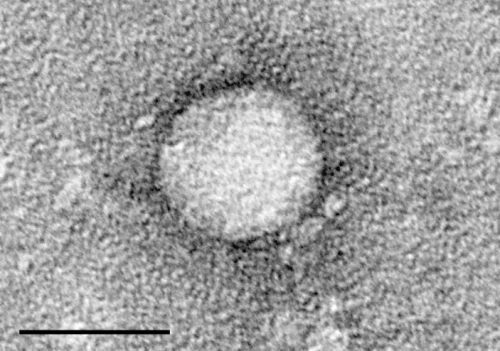COVID-19 pandemic responsible for decrease in hepatitis C testing

New research from Boston Medical Center finds that the COVID-19 emergency systemic changes made to decrease in-person visits during the pandemic have led to a decrease in hospital-wide Hepatitis C (HCV) testing by 50 percent, and a reduction in new HCV diagnoses by more than 60 percent. Published in the Journal of Primary Care and Community Health, this new research highlights the impact that the COVID-19 pandemic is having on hospital-wide and ambulatory HCV testing, and the ramifications of this decrease in identification of the virus.
The study findings demonstrate a greater impact in primary care clinics where there was a 72 percent decrease in testing and 63 percent decrease in new diagnoses. This is where telemedicine was incorporated into the clinical workflows, showing standard preventive care, including HCV testing, was not routinely performed throughout the pandemic, and telemedicine acting as a barrier to HCV care. The findings that testing for and diagnoses of HCV were decreased during the COVID-19 surge is alarming, due to the effect that undetected disease can have on those who are unknowingly infected. From the public health perspective, HCV is a transmissible infection that can propagate throughout a population if not detected and treated.
"The large decrease in HCV screening demonstrates the tradeoffs that occurred between maintaining safety and delivering preventive care services as a result of the health system responses during this pandemic," says Heather Sperring, MS, a data quality specialist in the Center for Infectious Diseases and Public Health Programs at Boston Medical Center and corresponding author on this study. "Nontraditional methods of preventive healthcare delivery need to be used in order to prevent the detrimental long-term effects of these gaps in patient care. This includes proactive efforts aimed at increasing preventive care and screening, and interventions that reduce health risks, decrease avoidable emergency room visits, and minimize the time necessary for patients to be in the hospital."
The data for this analysis was collected prospectively from December 1, 2019 to June 30, 2020. Using descriptive statistics, the analysis was completed by comparing unique patient tests for 3.5-month periods before and after March 16, 2020, analyzing total tests and total new HCV RNA positive results before and after, and mean daily tests. Effective March 16, 2020, BMC implemented the utilization of telemedicine for outpatient clinics wherever possible; preventive care, including phlebotomy for HCV screening, was not performed during this time. HCV test results for patients were collected each day and comparisons were made for all testing across the hospital, as well as exclusively for the primary care sites that have been the most heavily affected by the introduction of telemedicine. Since 2016, BMC has been utilizing an HCV screening program to better identify and treat patients with HCV.
"The healthcare impacts of COVID-19 are more widespread than the effects of the disease itself. The pandemic has had substantial implications for our patients, and not just those who contracted COVID-19," says Elissa Schechter-Perkins, MD, MPH, an emergency medicine physician at Boston Medical Center, an associate professor of emergency medicine at Boston University School of Medicine and co-author on this study. "Hepatitis C virus is likely just one example of many chronic diseases whose cascade of care was affected by COVID-19."
As an urban safety-net hospital, the patient population at BMC has four times more cases of HCV than the national average and are consistently screened for HCV in the emergency department and other clinics throughout the hospital, per current CDC recommendations. Other public health initiatives need to be monitored in the context of telemedicine workflows in order to improve access to HCV testing, and for healthcare professionals to continue to monitor HCV screening trends.
More information: Heather Sperring et al, Impact of the 2020 COVID-19 Pandemic on Ambulatory Hepatitis C Testing, Journal of Primary Care & Community Health (2020). DOI: 10.1177/2150132720969554


















